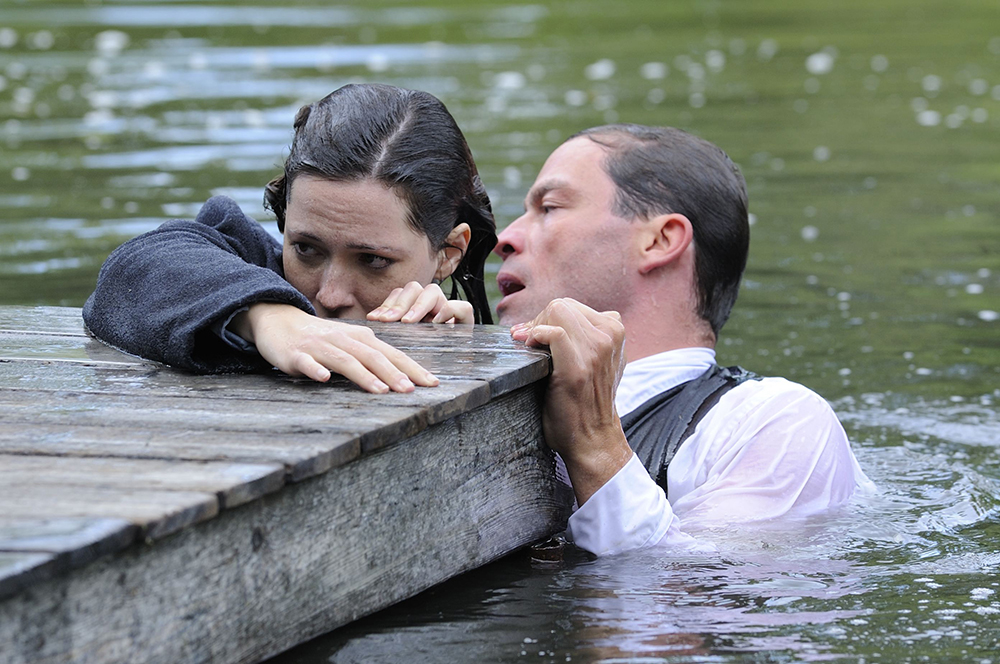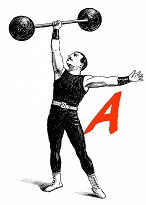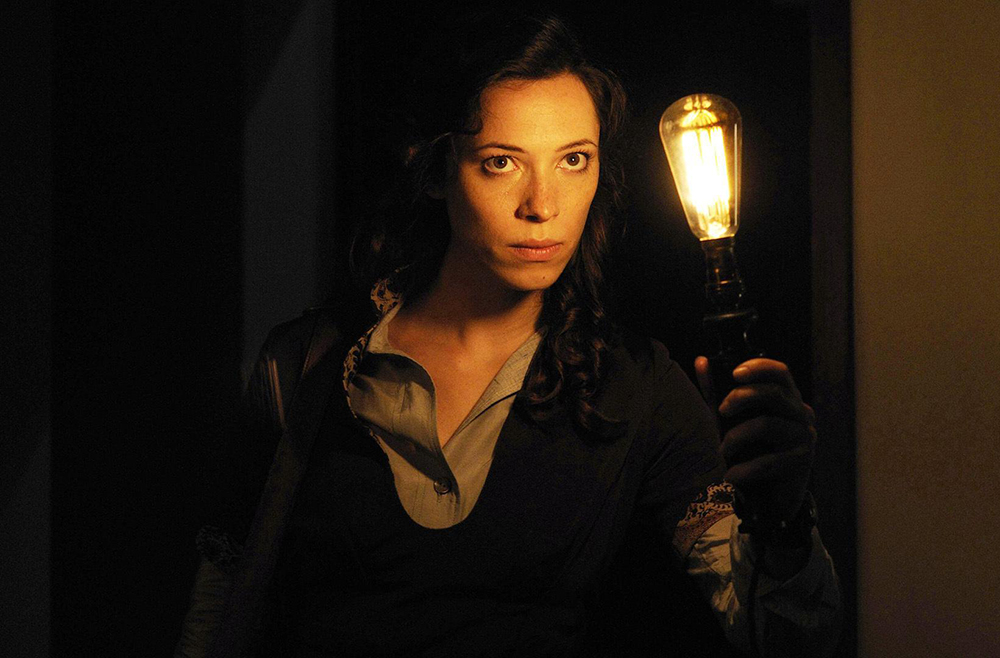Another notable aspect of the film is in its attempt to reconcile opposite philosophical views: on the one hand, there’s the spiritism and cynical empiricism, on the other there’s the rationalism and sentimentalism.
Florence, a ghost hunter and an author, represents the empiricism and rationalism, while Robert, a history teacher in a boys’ orphanage embodies spiritism and sentimentalism. Florence doesn’t actually believe in ghosts and her only creed is to dismantle all the tricks the other ghost hunters are playing. Therefore, she adopts a cynical attitude when Robert offers her a ghost hunting project in his orphanage, convinced that something odd is happening.
The vibe you get from the film’s beginning resembles the famous scene from “Anna Karenina,” in which a group of friends and acquaintances gathers at Kitty’s house. The conversation somehow changes the topic as it centers around spiritism, which was a contemporary social and epistemological phenomenon. Vronsky rejects its validity after some arguing; however, we can catch a glimpse of the vigorous debate that existed throughout the second half of the 19th Century and first decades of the 20th.
In accordance to her rational approach to the subject, Florence tries to prove that all the seemingly paranormal events in the orphanage are nothing but a children’s play. She places her cameras at different parts of the orphanage as well as other devices such as a magnetic field detector and footprint catcher. That’s largely what makes the film setting alluring—its vintage charm: the impression that antique technology, although not sophisticated, is simpler, straightforward, and trustworthy. The only thing Florence could refute however, was her own skepticism.

Unusual for a horror film is the amount of sexual tension and chemistry that permeates the story. Its implementation is a clever technique to make it all as uncertain, intangible, new and exciting as possible. There are perceivable hints of something happening both between the two protagonists and between the two worlds, but it all remains vague and concealed. The tension builds up both on the irrational and sentimental level up until the culmination point when the plot starts unraveling. From that moment on, everything becomes contoured, more real and concrete, so the viewer experiences a type of a horror relief.
“The Awakening” could qualify as a slow horror film with some jump scares that happen now and then. It’s important to emphasize, therefore, that it compensates for it towards the end as the acoustics coherently suggests further development and contribute to the overall spookiness.
It is more of a tale of the plasticity of our judgement, our proneness to reevaluate the world and our perceptions of it, to dynamically evolve and keep an open mind. That doesn’t diminish its horror quality, though. It goes beyond trying to trigger fear in viewers as it presents them with a heroine everyone identifies with: at the end of the day, everyone needs a little convincing.


